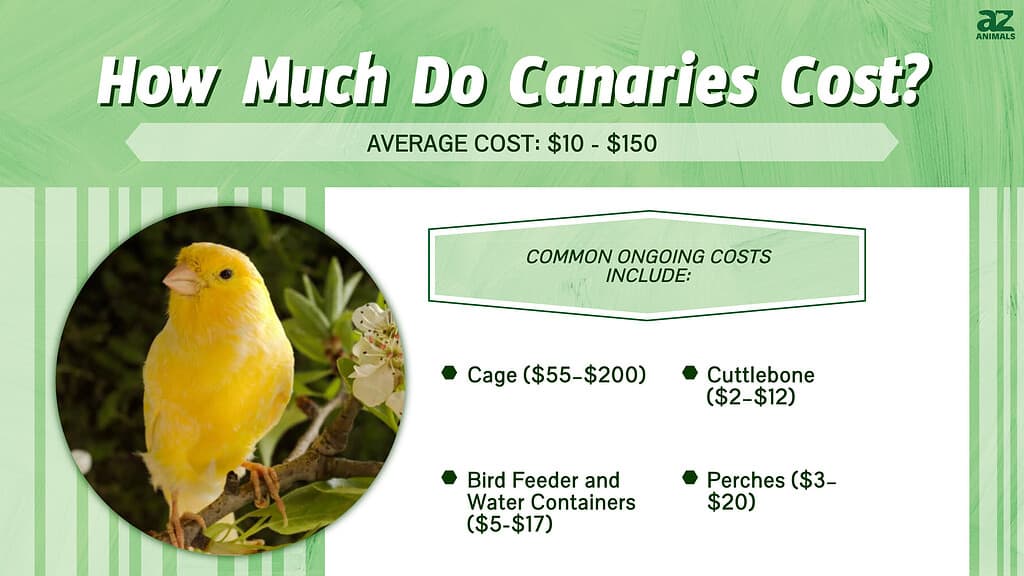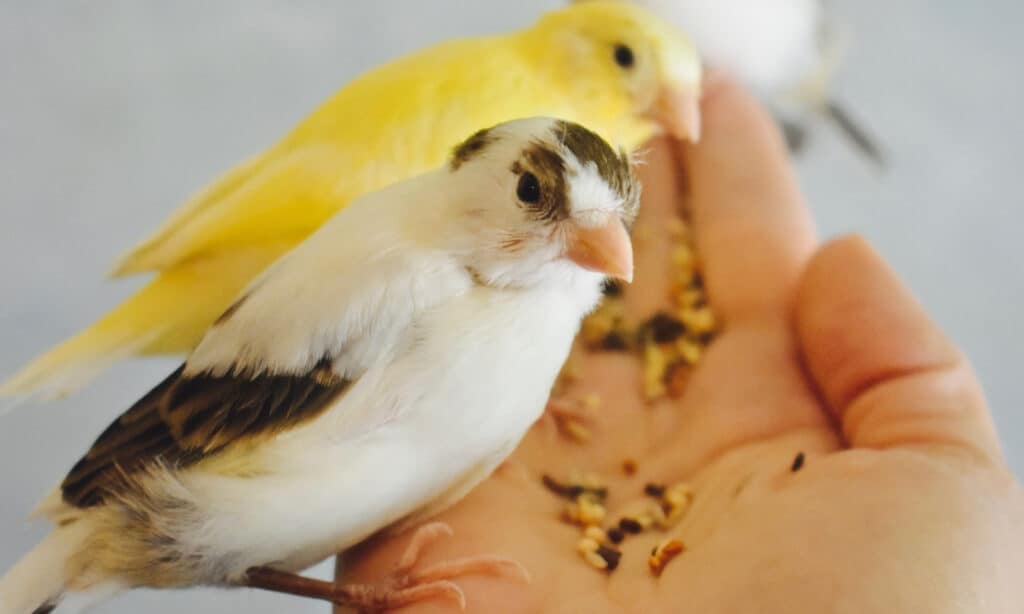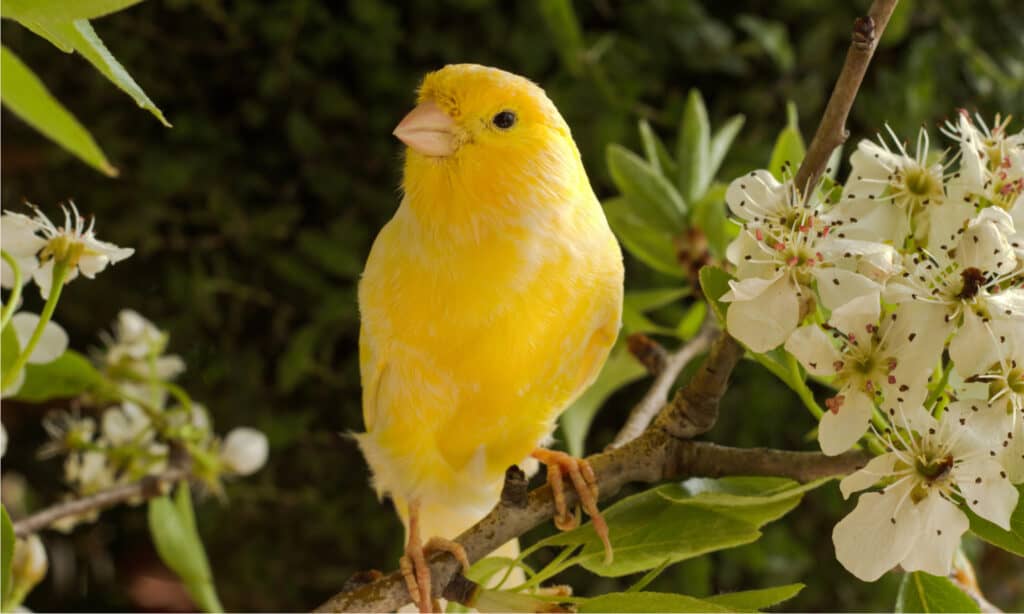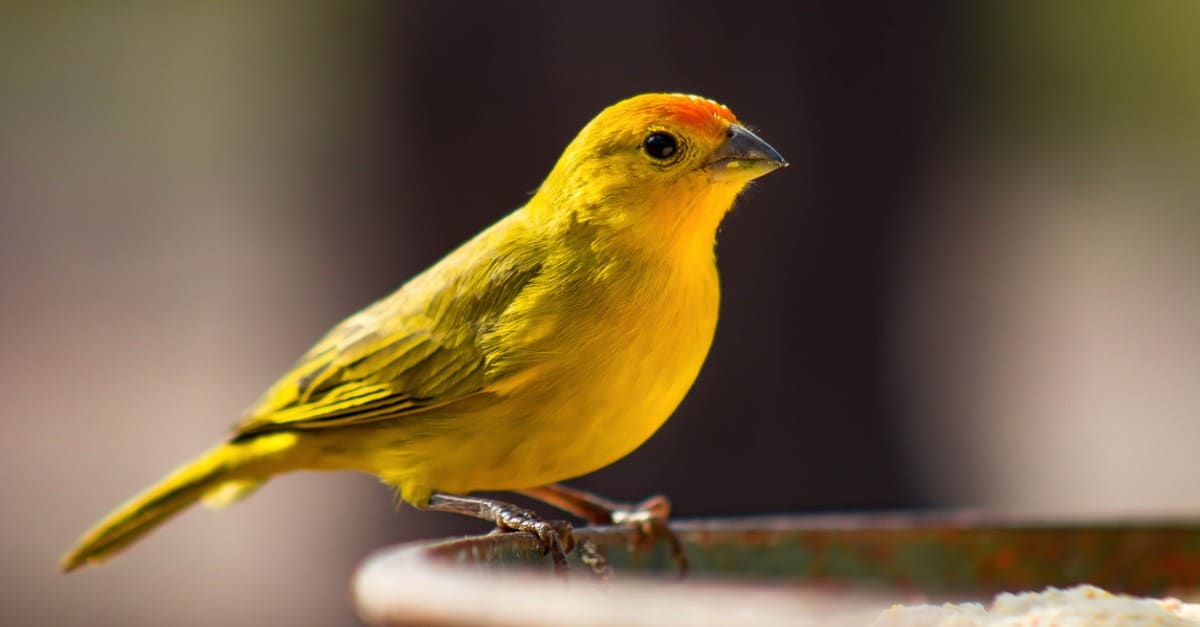For those bird enthusiasts considering the adoption or purchase of a canary, it is crucial to understand the potential costs associated with their care. Canaries, known for their stunning plumage and remarkable singing abilities, require a level of commitment in terms of both time and resources. This article provides an in-depth look at the expenses related to canary ownership, starting from the initial cost of purchase, through to supplies, food, and other care necessities.

How Much Does a Canary Cost?
The initial cost of bringing a canary home varies greatly depending on your chosen acquisition method – adoption, purchase from a breeder, or occasional free adoption. While the likelihood of finding a free canary is slim, the ranges for adoption and breeder prices vary considerably. Be prepared to spend anything from $10 to $400 depending on your choice.

Young canaries require commitment to their care.
©Amdezigns/Shutterstock.com
Adoption: $10-$150
Canaries might not be as easy to find in shelters compared to other pets, but the possibility exists. Adoption not only provides a loving home to a needy bird but also comes with the benefit of lower acquisition costs.
Breeder: $50-$400
Choosing a breeder is a pricier route; however, this guarantees you a bird of good health and lineage. Ensuring your chosen breeder is reputable and that the parent birds are well cared for is essential.

Be prepared to spend anything from $10 to $400 depending on your choice of canary.
©Yulia 0606/Shutterstock.com
Setting Up for Your New Canary: Initial Supplies Cost
Upon acquiring your new pet, you’ll need to invest in the proper supplies to make them feel at home. While existing canary owners may have some of these necessities, newcomers should be ready to spend around $2-$200.
List of Essential Canary Supplies and Their Costs
| Supplies | Price |
|---|---|
| Cage | $55–$200 |
| Cuttlebone | $2–$12 |
| Bird Feeder and Water Containers | $5–$17 |
| Bathing Bowls | $3–$20 |
| Perches | $3–$20 |
| Nest | $3–$12 |
| Toys | $3–$15 |
Month-to-Month Canary Care Costs
Beyond the initial cost of acquisition and setup, there are ongoing monthly expenses to account for. The average monthly cost of owning a canary ranges from $15 to $150, depending on factors such as health care, food, grooming, and maintenance.
Health Care: $60–$150+
Vet visits are a crucial part of pet ownership. With canaries, routine veterinary visits and emergency care can range from $60 to $150 or more.
Food: $15–$25
Feeding your canary requires a choice between seeds or pellets, both of which offer the necessary nutrients for your bird’s health.
Grooming: $0–$40
Canaries require minimal grooming, but you may opt for professional help for tasks like claw trimming and beak filing.
Medications and Vet Visits: $20–$100
Routine veterinary visits are essential for early detection of potential health issues.
Environment Maintenance: $3–$35
Regular upkeep of your canary’s living space, including cage cleaning and replenishing food and vitamins, is crucial for their wellbeing.
Insurance Costs for Canary Ownership
While insurance for canaries is not as common as it is for other pets, it can provide peace of mind and financial protection in case of unexpected medical emergencies or accidents. Insurance plans for birds typically cover veterinary expenses, including diagnostic tests, treatments, and surgeries. The cost of insurance depends, but ranges between $10-15 a month.
Thank you for reading! Have some feedback for us? Contact the AZ Animals editorial team.








